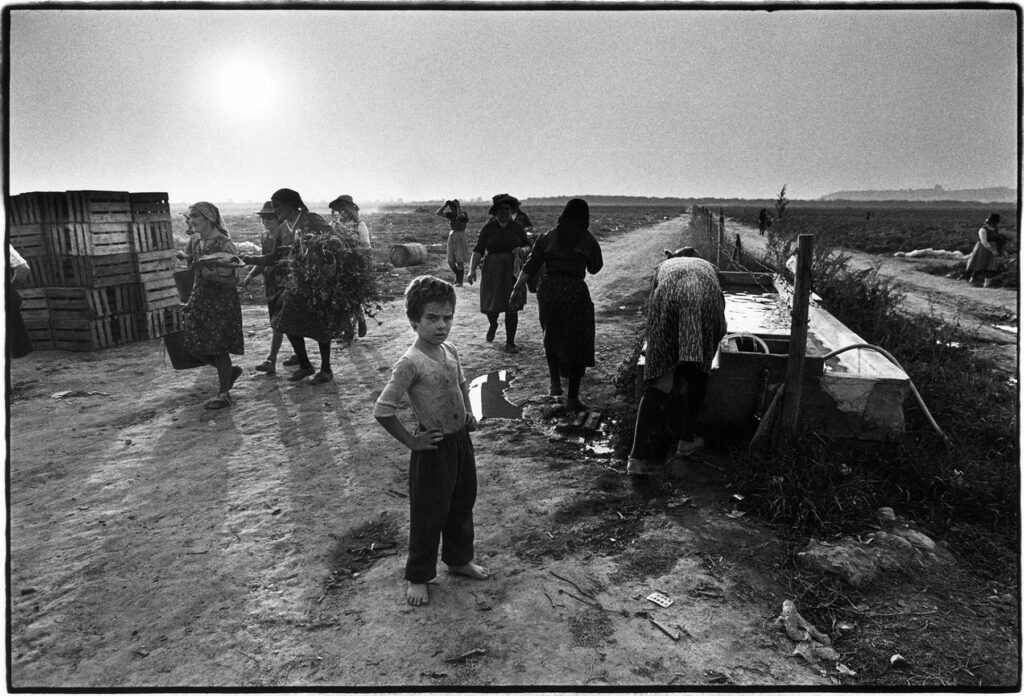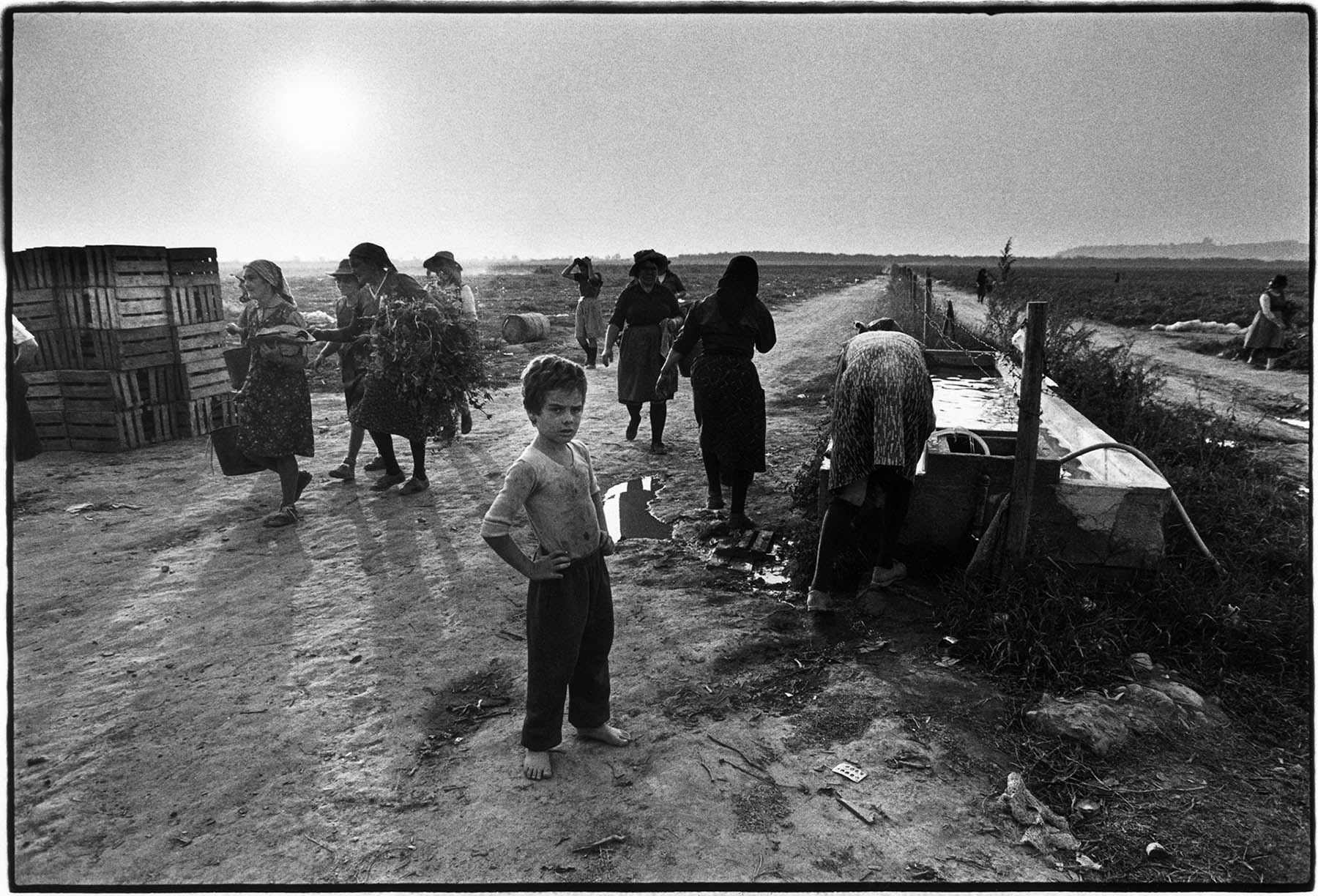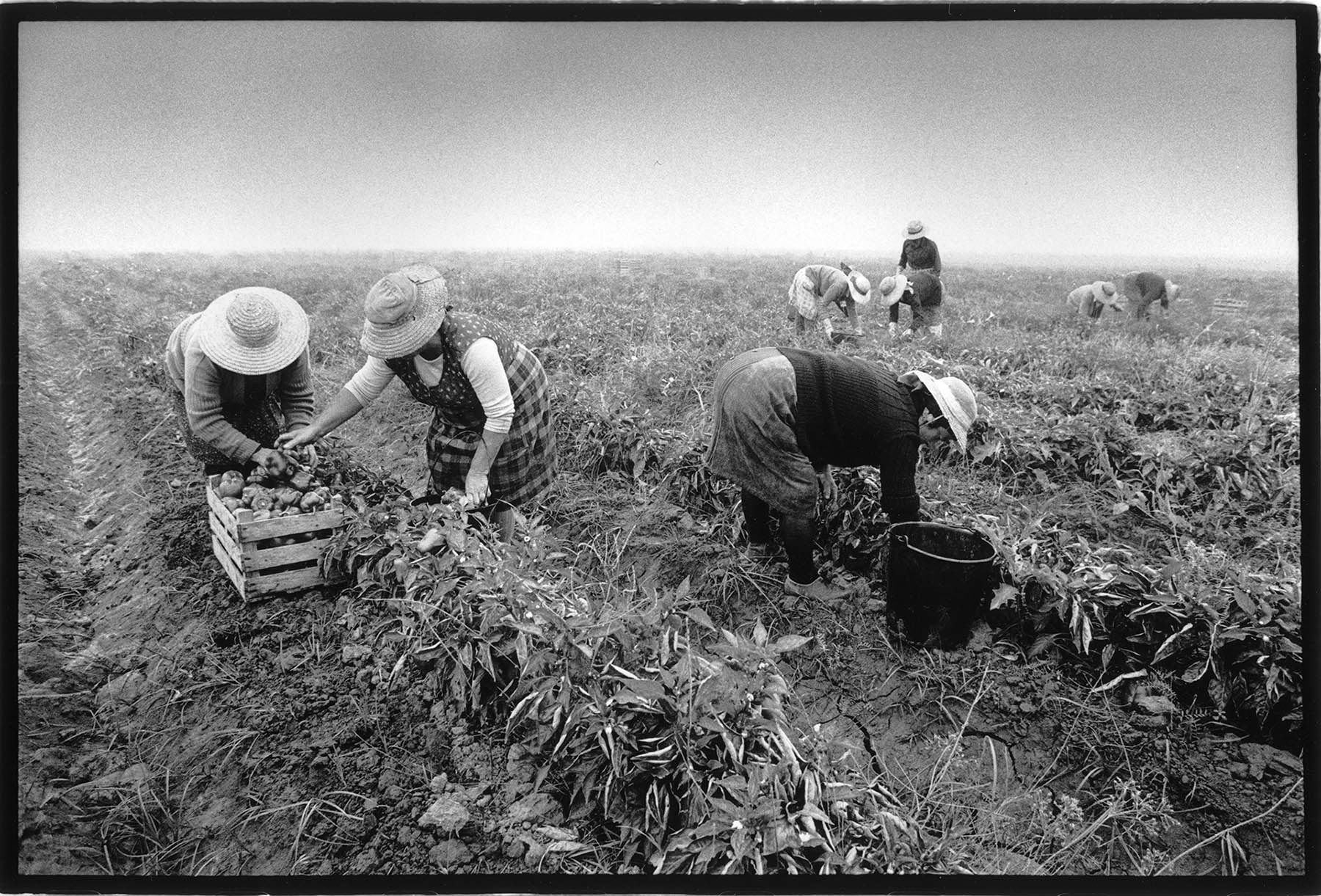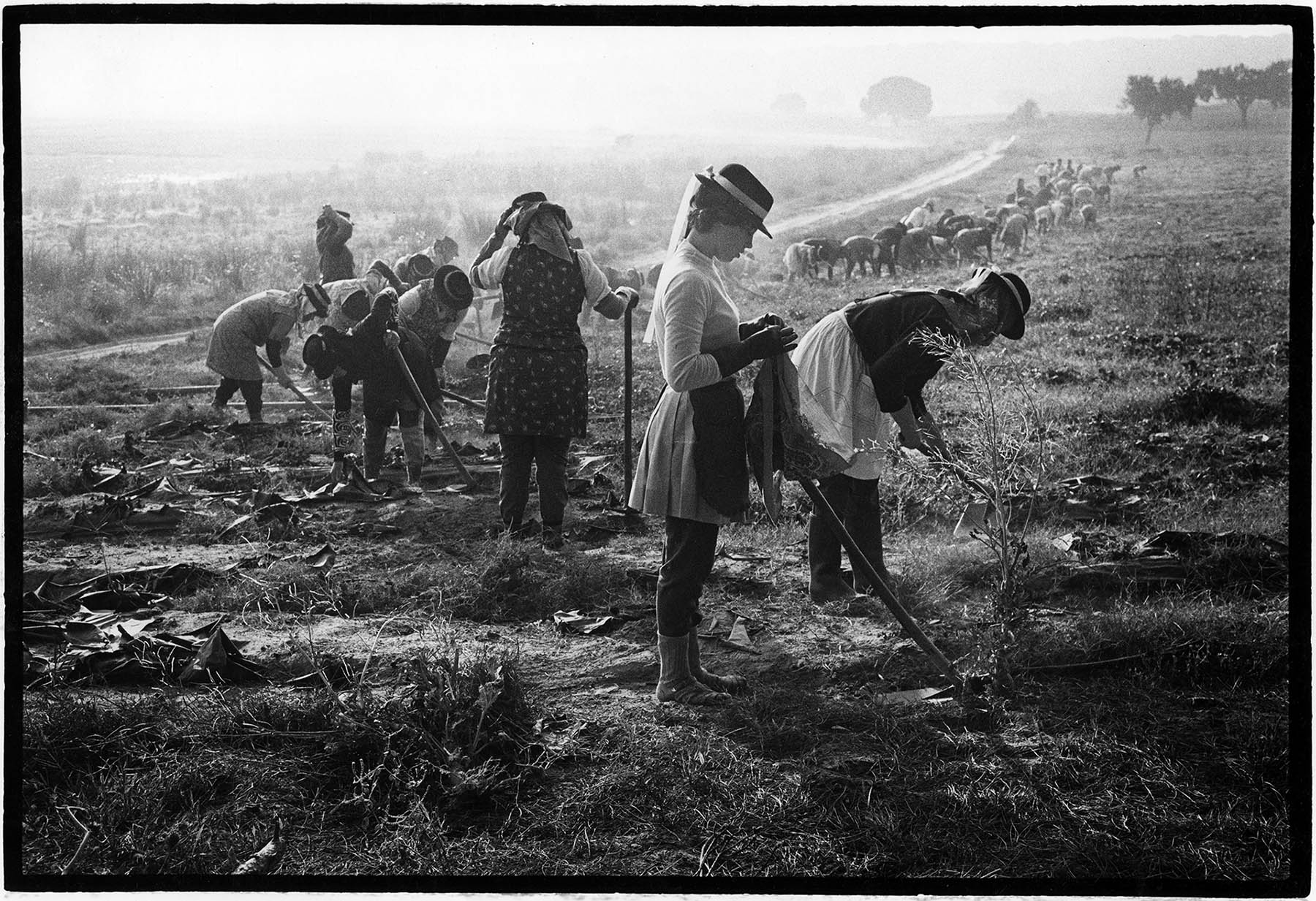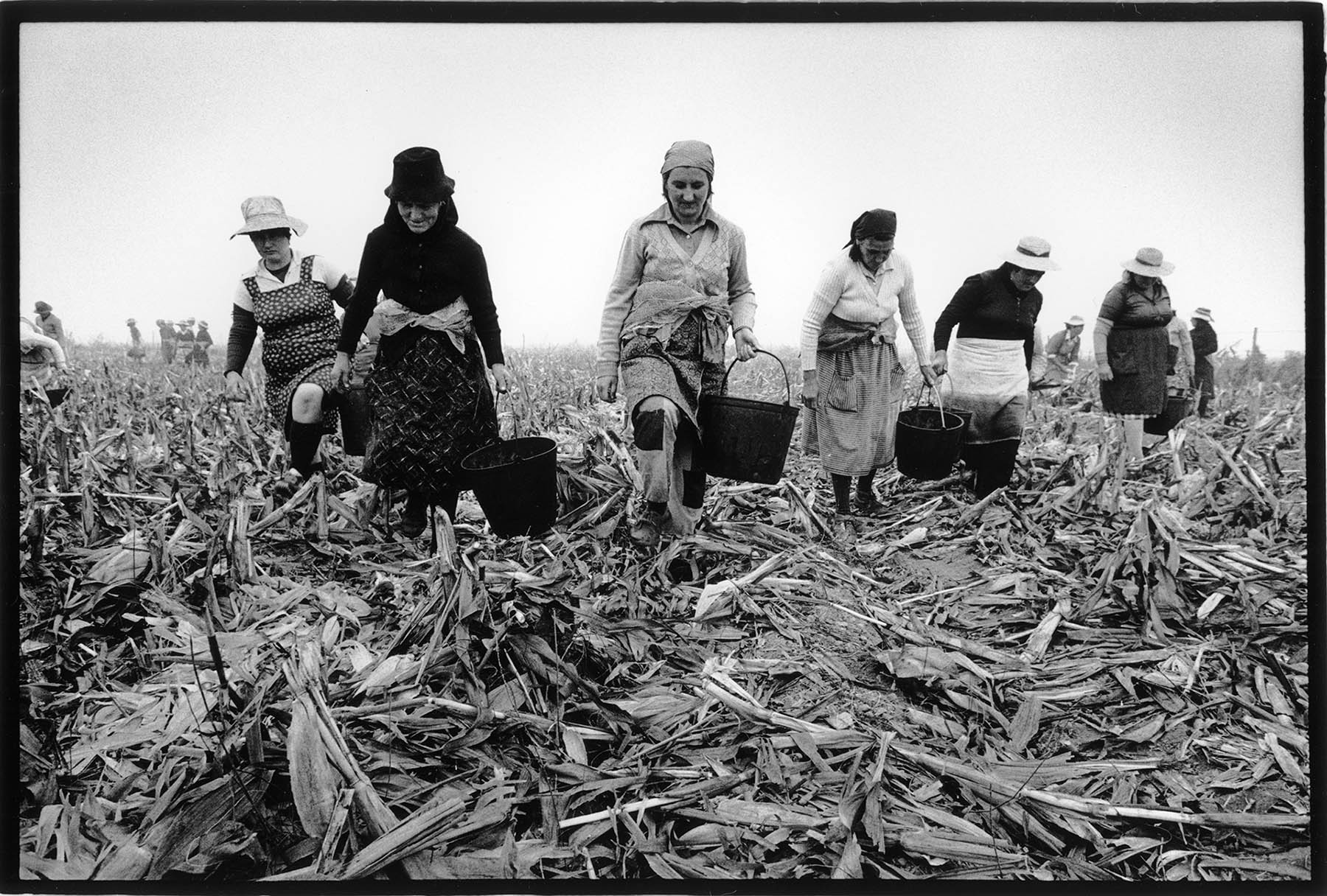Soon, after a political swing to the right, Portuguese governments started to withdraw their support of these revolutionary co-operatives. They had great difficulty in accessing long-term credit for investments in their production system and the new management lacked technical know-how. Bowing to political pressure, both domestic and from other European countries while negatiations over Portugal’s entry in the European Common Market were underway, the collective farms were gradually dismantled.
Restoration of occupied land began in 1978. By the middle of 1990, less than 10% of the land taken from the original landowners was still in possession of the remaining 30 collective farms. The gradual decollectivization of agriculture culminated in a reformed agrarian law in late 1988. Under its provisions, the maximum size of properties eligible for reprivatization was increased, and land could be divided among the heirs to an estate.
Many members of the collective farms accepted cash payments from the original owners, thus facilitating rapid change of ownership. Others accepted individual titles to small shares of the former collective production units.
Currently, there are hardly any collective farms left. And jobs on the latifundias today are scarcer than ever, as mechanization has done away with much casual farm labor – a move hastened by EU modernization grants.

